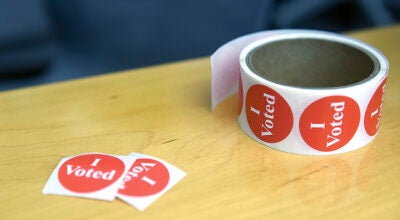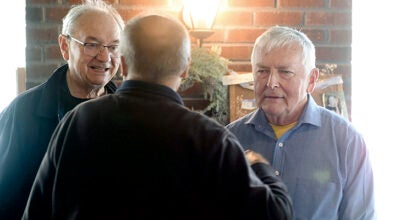Freedom is chance to do right
Published 7:31 am Wednesday, June 30, 2010
While most clichés of childhood are harmless as well as silly, some persist into what should be adulthood and do a good deal of personal, social, and political harm. When someone, especially an older sibling, tried to tell us not to do something that was wrong, we seemed to feel we had the weight of the U.S. Constitution when we protested, “This is a free country; I can do anything I wanna!”
Wrong. We didn’t understand what a free country is, because we didn’t understand freedom itself. I still hear this nonsense, even if now in “adult” terms.
Freedom is always relative to that from which we are free but also that to which we then become committed. Freedom is not only independence, but interdependence.
When the thirteen colonies gained independence, it was from Great Britain. But the colonies also thereby chose to make themselves interdependent. Having gained political freedom from Britain, this freedom was not absolute. Freedom is never absolute and always relative. When Parliament and the king could no longer tell the colonies what to do, they had to agree among themselves what to do.
The British were far from the world’s most tyrannical empire, exercising as they did one of the more benevolent colonial administrations. The Americans consciously deprived themselves of valuable imperial resources, and suffered for generations after these were cut off. One of the greatest losses was that of experienced and wise political leadership. Those who signed the Declaration of Independence and wrote the Constitution were seriously inexperienced in national leadership.
Now having become the United States of America, American citizens had to develop economic, industrial, social, and cultural resources from within. They learned how to exploit local natural resources, produce their own commodities, manufacture their own products, and craft their own tools. They established newspapers to talk with each other. A distinctly American culture developed, even though they and the British continued to speak the same language.
The Church of England was disestablished here, and Anglicans became Episcopalians. Congregationalists, Baptists, and Methodists arose and thrived. Jews found a home here. Even the Roman Catholic Church became more American than Roman. Although religious freedom developed here such as the world had never known, most Americans freely chose to be religious and to become religiously interdependent.
Government officials no longer being appointed and assigned by the Crown, ordinary yeomen went to the local polls and voted for each other to serve as local, state, and federal officials. These governmental levels themselves become interdependent. Despite the various levels of governance, no hierarchy was allowed. The elected and constitutionally appointed officials also became interdependent.
Despite this wonderful history of freedom conceived as a balance of independence and interdependence, the childish nonsense has recently experienced resurgence. It has now become the political philosophy and social theory of many old enough they could be adults. It seems that everyone considers himself one kind of a victim or another, and it is always the fault of someone else. No sense of personal responsibility. So, of course, many haven’t even heard about social responsibility.
They suppose they are independent and exercise freedom without having any idea of meaning. The pseudo-freedom that compromises our society is relief from something demanding, but also surrender to something destructive.
Freedom is not an absolute value and an end in itself; it has value only relative to a worthy end toward which it is an appropriate means.
Freedom does not loose us with a license to do anything we want; it binds us under mandate to do all we ought.
Freedom is not the right to do anything we can, but the obligation to do all we must.
Freedom is the ability to be what you ought to be and the opportunity to function according to this nature.
Freedom is commitment to an object in which you wish to be free and separation from everything that compromises that commitment.
Genuine freedom is escape from something oppressive, but also commitment to something fulfilling.
Freedom is not the right to do the opportune, but the opportunity to do the right.





